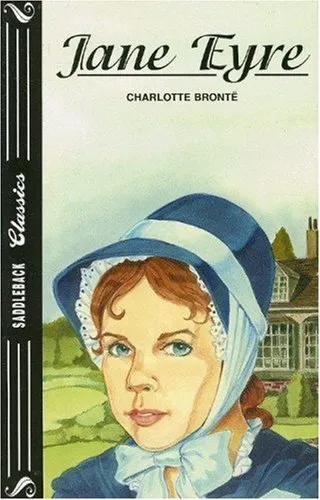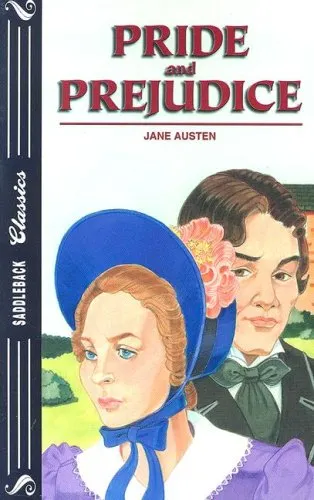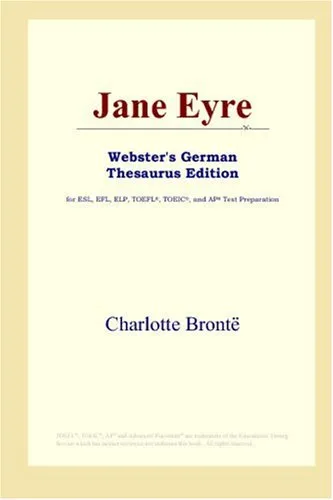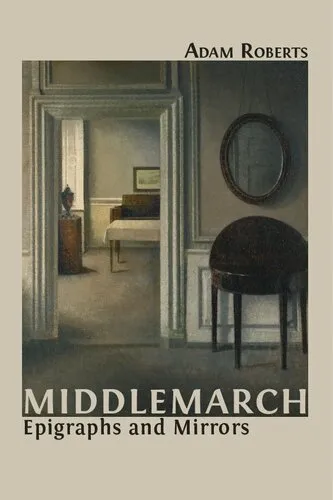Jane Eyre
4.2
Reviews from our users

You Can Ask your questions from this book's AI after Login
Each download or ask from book AI costs 2 points. To earn more free points, please visit the Points Guide Page and complete some valuable actions.Related Refrences:
Persian Summary
Introduction to Jane Eyre
Published in 1847, "Jane Eyre" is a novel by Charlotte Brontë that combines elements of social criticism, morality, and gothic fiction in a first-person narrative that transformed the genre of Romantic literature. The book follows the life of its eponymous protagonist, Jane Eyre, as she navigates the trials and tribulations of a challenging societal structure, embarks on a quest for identity, and seeks a sense of belonging and love.
Detailed Summary
Jane Eyre begins her journey as a poor orphan living with her cruel Aunt Reed and her spiteful cousins. Her intelligence and spirit stand in stark contrast to her bleak surroundings in Gateshead Hall. Following an unjust punishment, Jane is sent to Lowood Institution, an all-girls school marked by austere conditions and harsh treatment. Despite these hardships, she excels academically and befriends Helen Burns, whose tragic death becomes a pivotal moment in Jane's development.
Upon reaching adulthood, Jane becomes a governess at Thornfield Hall, where she meets the enigmatic and brooding master, Mr. Rochester. As Jane and Rochester's relationship unfolds, she grapples with the complexities of love and the moral dilemmas involving duty and independence. The novel's gothic elements intensify with the revelation of a dark secret concealed in Thornfield's attic, propelling Jane towards a destiny of self-discovery and moral integrity.
Following a series of dramatic events, including a failed wedding and the destruction of Thornfield Hall, Jane finds her independence tested yet again. The novel's conclusion ties back to the themes of redemption, love, and the pursuit of true happiness, as Jane embodies resilience and evolution through her unwavering honesty and moral fortitude.
Key Takeaways
- The exploration of women's social class and gender roles in Victorian England.
- The significance of personal integrity, autonomy, and self-respect in building authentic relationships.
- The power of resilience in overcoming adversity and societal expectations.
- An analysis of gothic elements and romantic ideals shaping the narrative.
- A critique of the societal institutions that confine and challenge the autonomy of individuals, especially women.
Famous Quotes from the Book
"I am no bird; and no net ensnares me: I am a free human being with an independent will."
"Do you think, because I am poor, obscure, plain, and little, I am soulless and heartless? You think wrong!"
"I must keep in good health and not die."
These passages reflect Jane Eyre’s steadfast resolve and unyielding spirit as she confronts societal constraints.
Why This Book Matters
"Jane Eyre" remains a seminal work due to its profound influence on literature and its discussion of crucial social issues. Brontë's portrayal of Jane as an independent, complex character was revolutionary for its time, challenging the traditionally passive roles assigned to female protagonists. Through Jane's eyes, readers gain insight into the struggles for gender equity and individual identity that continue to resonate today.
The novel’s intricate exploration of themes such as love versus autonomy, the pursuit of one's moral compass, and the intricate dance between societal constraints and personal freedom has cemented "Jane Eyre" as a touchstone in English literature. By presenting a rich tapestry of character development, ethical dilemmas, and evocative prose, "Jane Eyre" transcends time as a beacon of literary brilliance.
Free Direct Download
You Can Download this book after Login
Accessing books through legal platforms and public libraries not only supports the rights of authors and publishers but also contributes to the sustainability of reading culture. Before downloading, please take a moment to consider these options.
Find this book on other platforms:
WorldCat helps you find books in libraries worldwide.
See ratings, reviews, and discussions on Goodreads.
Find and buy rare or used books on AbeBooks.
1580
بازدید4.2
امتیاز0
نظر98%
رضایتReviews:
4.2
Based on 0 users review
Questions & Answers
Ask questions about this book or help others by answering
No questions yet. Be the first to ask!
















